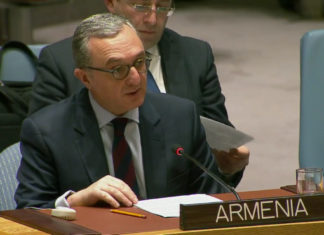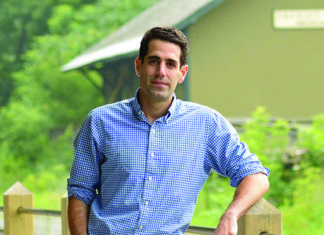By Alin K. Gregorian
Mirror-Spectator Staff
His talk was divided into geographical regions. Armenia and the Caucasus made up the last portion of the talk. Sounding at times like the Cold War veteran that he is, he figuratively wagged his finger at Armenia. Djerejian was unhappy with the choice of friends Armenia has made — Russia and Iran — and suggested it should get a “truly democratic and enlightened foreign policy.” He stressed that
Azerbaijan and Georgia have instead cultivated strong ties with the west, which Armenia should emulate.
He said the “US has made a concerted effort to help Armenia,” giving “$2 billion in development aid” to the nation. He noted, “Serious challenges remain,” including high unemployment, inflation and emigration by the young.
He suggested Armenia had two problems it should solve in terms of foreign policy: its conflict with Azerbaijan and the stalled talks with Turkey.









